Introduction
Autism Awareness Month, known for its advocacy for understanding and inclusivity, traces its roots back to the 1970s. This significant period marked the start of a concerted effort to bring autism into public consciousness and to champion the rights and well-being of those on the autism spectrum. With each passing year, the movement has garnered momentum, transforming into a worldwide call to action that addresses the unique challenges faced by autistic individuals and underscores their contributions to society.
The month-long observance is a testament to the diversity and potential within the neurodiverse community. It encourages society to acknowledge that autism is not just a set of behaviors but a complex developmental condition that presents a broad array of strengths and challenges. This perspective is reinforced by the fact that autism affects individuals differently, making it a spectrum where some may experience difficulties in social interaction and sensory processing, while others may demonstrate exceptional abilities in various fields.
President Joseph R. Biden Jr.'s proclamation on World Autism Acceptance Day highlights the significance of this month as a time to honor the diversity and achievements of autistic people. It also emphasizes the Administration's commitment to addressing the disparities in access to employment, healthcare, and education that autistic individuals often face.
The month is not only about raising awareness but also about celebrating the unique talents and perspectives that autistic individuals bring to our communities. It is a period that empowers us to learn from one another and to build a more inclusive society that values the contributions of all, including those with autism.
History of Autism Awareness Month
Autism Awareness Month, known for its advocacy for understanding and inclusivity, traces its roots back to the 1970s. This significant period marked the start of a concerted effort to bring autism into public consciousness and to champion the rights and well-being of those on the autism spectrum. With each passing year, the movement has garnered momentum, transforming into a worldwide call to action that addresses the unique challenges faced by autistic individuals and underscores their contributions to society.
The month-long observance is a testament to the diversity and potential within the neurodiverse community. It encourages society to acknowledge that autism is not just a set of behaviors but a complex developmental condition that presents a broad array of strengths and challenges. This perspective is reinforced by the fact that autism affects individuals differently, making it a spectrum where some may experience difficulties in social interaction and sensory processing, while others may demonstrate exceptional abilities in various fields.
President Joseph R. Biden Jr.'s proclamation on World Autism Acceptance Day highlights the significance of this month as a time to honor the diversity and achievements of autistic people. It also emphasizes the Administration's commitment to addressing the disparities in access to employment, healthcare, and education that autistic individuals often face.
The month is not only about raising awareness but also about celebrating the unique talents and perspectives that autistic individuals bring to our communities. It is a period that empowers us to learn from one another and to build a more inclusive society that values the contributions of all, including those with autism.
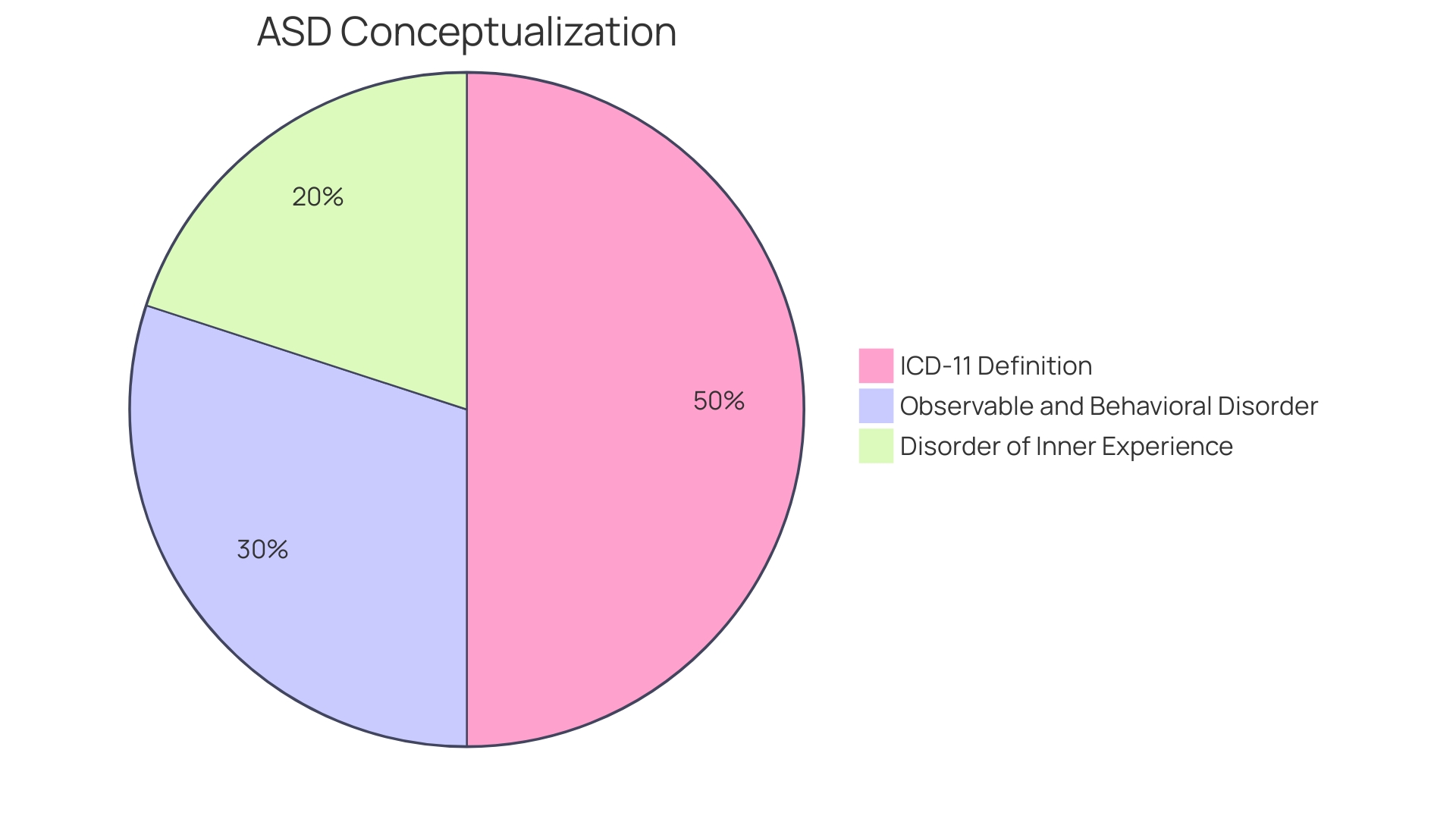
Importance of Autism Awareness Month
April, designated as Autism Awareness Month, represents a crucial period for enhancing the public's understanding and embracing the neurodiversity inherent in Autism Spectrum Disorder (ASD). With recent estimates suggesting that around 1 in 70 people are autistic, this month-long observance underscores the importance of debunking myths and fostering acceptance for approximately 1 million individuals in the UK alone. Despite the eagerness of many autistic individuals to work, they face significant employment challenges, with only 3 in 10 finding employment, compared to 5 in 10 disabled individuals and 8 in 10 non-disabled individuals. The employment gap is further compounded by a substantial pay disparity, where autistic individuals earn a third less on average than their non-disabled peers.
In addressing these challenges, Autism Awareness Month serves as a platform to highlight initiatives like the review that gathered insights from employers, autistic people, and charities over the summer of 2023. The focus is on strategies that can improve recruitment, retention, and development of autistic employees, aiming to boost employment rates significantly over the next five years.
Moreover, the month is a time to reflect on the critical need for an evidence-based approach to autism assessment and support. Reports warn of a crisis in children's autism assessment, with many waiting excessively long for necessary health and education support. A 'needs-led' approach, as opposed to a 'diagnosis-led' system, is advocated to ensure early identification and swift support without the reliance on a formal diagnosis.
Embracing the concept of neurodiversity, World Autism Month encourages a shift in perspective, where cognitive differences are celebrated rather than perceived as deficits. Real-world examples like Emirates and Dubai International Airport's collaboration to improve travel experiences for neurodivergent passengers, or Microsoft's neurodiversity hiring program, which has onboarded around 300 full-time neurodivergent employees, demonstrate the value and potential of inclusive practices.
By promoting understanding, acceptance, and actionable support, Autism Awareness Month contributes to building a society that not only recognizes but also capitalizes on the unique strengths and abilities of individuals on the autism spectrum.
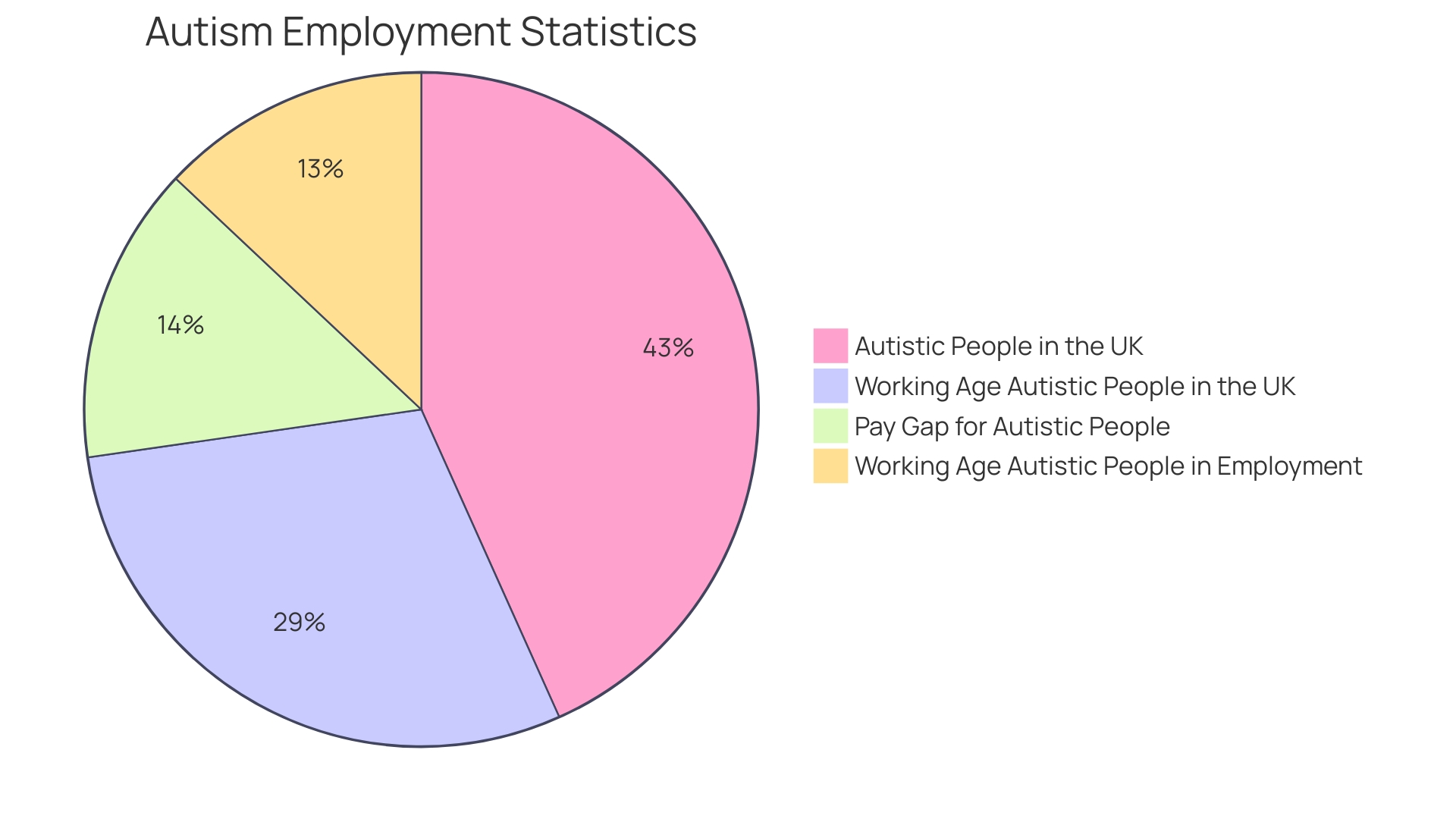
Characteristics and Impact of Autism Spectrum Disorder (ASD)
Autism Awareness Month serves as a beacon, illuminating the complexities and diverse presentations of autism spectrum disorder (ASD). ASD encompasses a range of neurological variations that manifest in unique ways across individuals, affecting communication, social interaction, and behavior. The spectrum is wide, and some individuals may require very substantial support, as evidenced by a study in the Journal of Personalized Medicine involving 4-year-old dizygotic twins with level 3 severity ASD, showing that personalized, multidisciplinary approaches can significantly alleviate symptoms.
The urgency for awareness is underscored by the escalating prevalence of autism, which is now estimated to occur in as many as 1 in 36 individuals, according to the CDC. Early identification and intervention are pivotal, as they enable access to resources that can profoundly shape the trajectory of an individual's life. The Diagnostic and Statistical Manual (DSM-5) delineates the diagnostic criteria for autism, highlighting persistent differences in social communication and interaction, as well as restricted, repetitive patterns of behavior, activities, or interests.
Amidst the evolving landscape of autism understanding, Autism Awareness Month is more than just an annual observance; it's a call to action for enhanced support services, inclusive educational opportunities, and a deeper societal embrace of neurodiversity. As Beth Lambert from Epidemic Answers articulates, "We're doing research to try to gather evidence that many of these conditions are reversible. But also we're trying to create a platform where we can give solutions to parents—we're trying to educate them." This month champions the notion that with knowledge, compassion, and collective effort, we can create a more inclusive world where individuals with ASD can thrive.
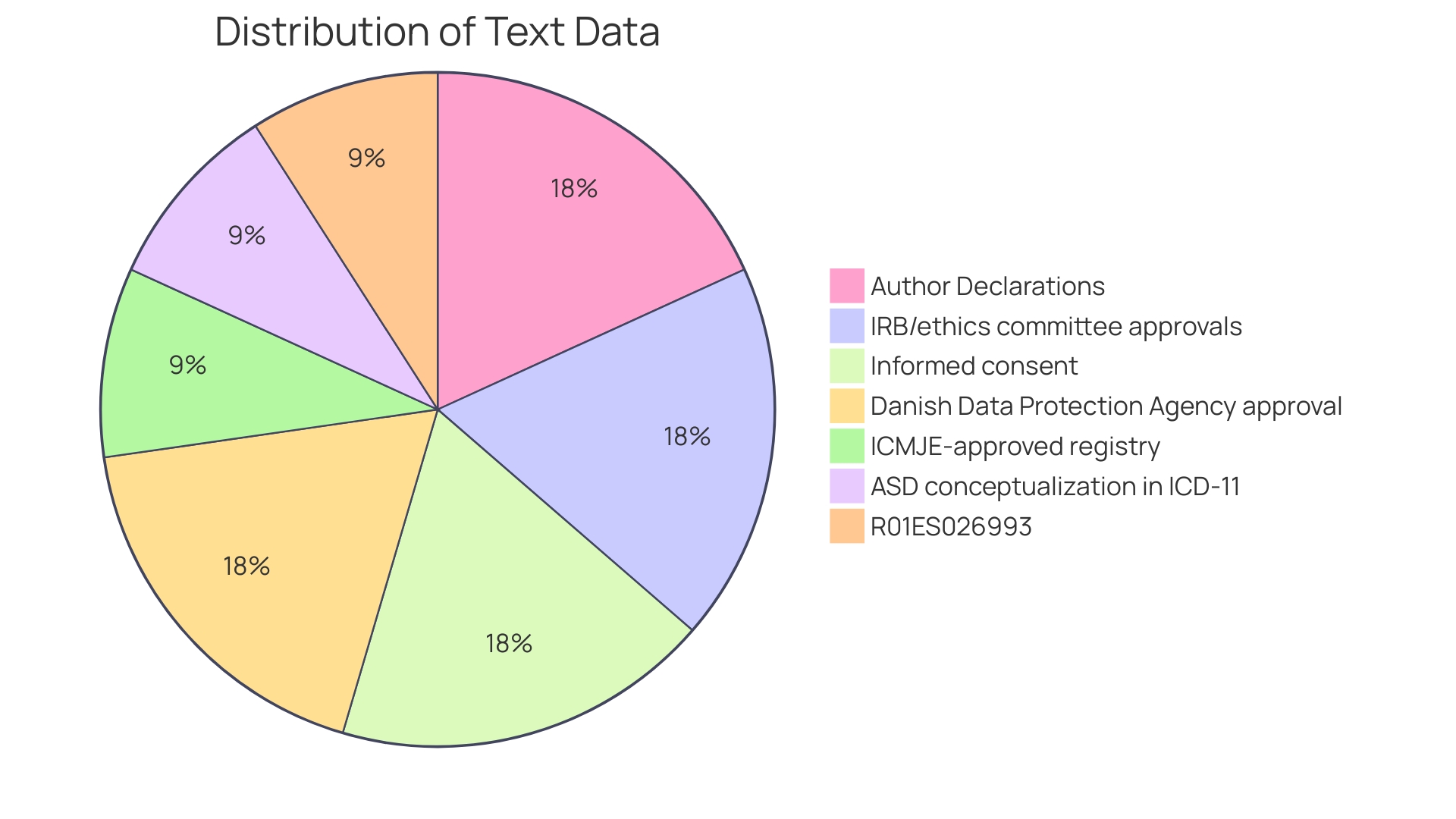
Goals of Autism Awareness Month
Autism Awareness Month serves as a beacon, illuminating the path towards a society that celebrates neurodiversity and provides robust support to individuals with autism. Throughout April, the focus sharpens on dismantling stereotypes and fostering a culture where the unique experiences and abilities of those on the autism spectrum are not only recognized but also integrated into everyday life. This initiative advocates for a world where people with autism enjoy equal opportunities in healthcare, education, and employment, mirroring the strides made by the Individuals with Disabilities Education Act (IDEA) in early childhood programs. With legal frameworks reinforcing inclusion and resources being shared to enhance individualized support, the month champions the idea that every child, regardless of ability, deserves a fair start in life.
Experts encourage viewing autism as a natural aspect of human diversity, valuing the strengths and contributions that autistic individuals bring to our communities. In line with this perspective, the IACC's partnership with various federal agencies and community stakeholders aims to propel research and services that acknowledge and celebrate this diversity. Recent studies underscore the economic benefits of inclusive employment, revealing that businesses which embrace a neurodiverse workforce not only enrich their company culture but also see tangible financial gains, with potential increases to the U.S. GDP.
The neurodiversity movement, which was central to the evolution of Autism Acceptance Month, asserts that neurological differences should be acknowledged and appreciated just like any other form of diversity. This April, as President Biden reiterates his commitment to disability rights and as UN Secretary General Guterres lauds the contributions of autistic individuals, we are reminded of the collective effort required to ensure that people with autism can fully participate in society. Whether it's through large-scale events like the Autism Speaks Walk or through individual acts of understanding and acceptance, Autism Awareness Month is a time for reaffirming our commitment to creating an inclusive world for all.
Promoting Awareness and Acceptance
Autism Awareness Month serves as a beacon, shining light on the richness of neurodiversity and the importance of embracing autistic individuals within all facets of society. Throughout this pivotal month, communities, educational institutions, and workplaces are encouraged to engage in open discussions and partake in activities that aim to dismantle misconceptions and foster an environment of understanding.
Remarkable case studies, such as the comprehensive review launched on World Autism Awareness Day, have brought together the collective insights from employers, autism charities, and individuals with autism. The findings underscore the necessity of creating supportive pathways for autistic people in the workforce, highlighting that despite 3 in 10 autistic adults being employed, many more are eager to contribute their skills.
In tandem with these efforts, news stories like that of Humza, an 11-year-old Emirates superfan who experienced his first flight, demonstrate the strides being made to accommodate neurodivergent individuals in various settings, including travel.
The narrative of Autism Awareness Month is further enriched by the powerful words of advocates who remind us that autism represents a natural variation of human brain function. Such affirmations underscore the importance of acceptance over the quest for a cure and the celebration of the unique strengths autistic individuals bring to our communities.
Moreover, statistics reveal the untapped economic potential of inclusive employment. Studies have shown that businesses embracing neurodiverse employees not only contribute to a positive work environment but also experience noticeable benefits to their bottom line, with potential GDP growth estimated in the billions.
At its core, Autism Awareness Month is about paving the way for a society where autistic individuals can thrive, leveraging their unique perspectives and talents to enrich our world.
Celebrating Differences and Strengths
Autism Awareness Month is a vibrant celebration of the rich tapestry of experiences and talents within the autism community. This annual observance is a powerful reminder to embrace neurodiversity and the significant contributions of individuals with autism to our society. From showcasing artistic brilliance to highlighting technological innovations, the month-long recognition illuminates the spectrum of abilities that flourish within the autism community.
Neurodiversity Celebration Week sheds light on the need to perceive learning differences not as deficits but as various expressions of the human mind. Founded by Siena Castellon at just 16 years old, this initiative has blossomed into a widespread movement, championing the idea that support for autistic individuals should balance addressing challenges with celebrating strengths and accomplishments. This approach echoes the sentiments of Siena, who articulated the importance of recognizing individuals for more than their difficulties.
Similarly, inclusive employment practices have demonstrated the invaluable contributions of neurodivergent individuals in various sectors. Autism Speaks and companies like Microsoft have seen firsthand how integrating neurodiverse perspectives leads to a richer, more innovative workplace culture. Microsoft's neurodiversity hiring program, mirroring initiatives from SAP, has welcomed around 300 full-time neurodivergent employees, enhancing the company's dynamism and problem-solving capabilities.
It is crucial to move away from narratives that portray disabled people as mere sources of inspiration, a concept Stella Young criticized as 'Inspiration Porn'. Instead, World Autism Month spotlights the diverse abilities and potential of individuals on the spectrum, aligning with the principle that a neurodiverse world enriches us all. By focusing on the strengths and unique talents of autistic individuals, we foster a narrative that is not only empowering but also reflective of the true diversity of human capabilities.
Educational resources and community initiatives play a pivotal role in this awareness effort. Accessible programs and learning materials, such as the 5-minute CPD video on neurodiversity, equip educators with the tools to celebrate cognitive differences and promote inclusive learning environments. The transformative power of embracing neurodiversity is further exemplified by the achievements of icons like Alan Turing, whose unparalleled contributions to computer science and artificial intelligence were made possible by his unique cognitive perspective.
Statistics underscore the societal and economic benefits of inclusivity. Integrating individuals with autism into the workforce not only enhances productivity but can also contribute up to $25 billion to the U.S. GDP. Moreover, companies that employ people with disabilities see better financial performance and a more positive workplace culture. As we strive for a society that values each individual's contributions, Autism Awareness Month provides a platform for dialogue, education, and the celebration of the neurodiverse spectrum.
Supporting Individuals and Families
Autism Awareness Month is a beacon of support for individuals with autism and their families, offering a bridge to vital resources and communities of care. By spotlighting the unique challenges faced by those with autism, it paves the way for more inclusive support networks and research funding aimed at enhancing quality of life. Recent findings by Autistica highlight that a staggering 1 in 70 people in the UK may be autistic, indicating a significant need for supportive measures. Despite a strong desire to work, only 30% of working-age autistic individuals are in employment, a figure that underscores the urgent necessity for improved workplace inclusion and equal opportunities.
The disparities extend to wages as well, with autistic individuals experiencing the largest pay gap among disability groups, earning on average a third less than non-disabled peers. Initiatives such as the Kevin and Avonte Program, which has allocated over $10 million towards preventing wandering-related incidents, exemplify the targeted efforts to safeguard and support the autism community.
Moreover, the Interagency Autism Coordinating Committee (IACC) remains at the forefront of enhancing autism research and services, embodying a concerted effort from various federal agencies and community stakeholders. Educational methods like the TEACCH approach are revolutionizing the learning environment by leveraging the strengths of visual learning and consistency to foster better academic outcomes.
As we continue to update on the latest news and events throughout Autism Awareness Month, we reflect on President Biden's proclamation in honor of World Autism Acceptance Day, reaffirming a commitment to dismantle barriers in employment, healthcare, and education faced by autistic individuals. The journey towards greater acceptance and support for those with autism is ongoing, and Autism Awareness Month is a critical milestone in this collective endeavor.
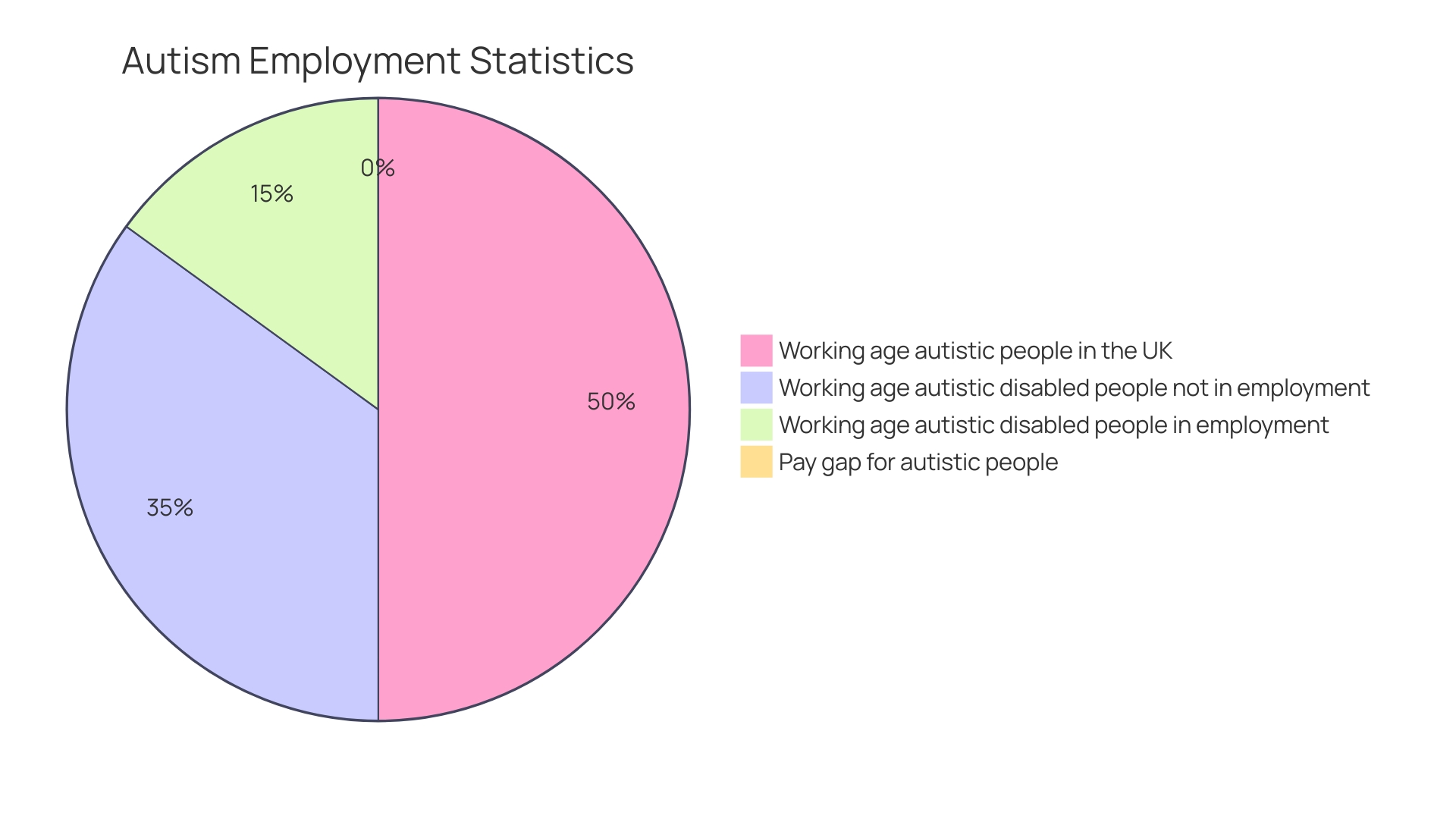
International Recognition and Global Impact
Autism Awareness Month is more than just a period on the calendar; it's a global movement that catalyzes advocacy and ignites policy change, ensuring the rights of individuals with autism are acknowledged and upheld across the world. This month unifies diverse groups—from individuals and families to organizations and entire communities—across international boundaries, fostering a spirit of cooperation and exchange of knowledge. Such collaboration is pivotal in enhancing support systems and elevating awareness of autism on a worldwide stage.
Individual stories like those of Alex, who has grown into a talented artist, and Grace, who co-founded GracePlace Art, highlight the incredible potential of individuals with autism. Initiatives like The Spotlight Project demonstrate the valuable contributions these individuals can make to the workforce, showcasing their ability to learn and master new skills. These examples underscore the importance of Autism Awareness Month in promoting inclusivity and celebrating the unique talents within the autism community.
Meanwhile, the global landscape for individuals with disabilities, including those with autism, remains complex, with challenges such as the discrimination faced by disabled people in conflict zones. As we advance, entities like Pediatric Research are leading the way in advocating for ethical and inclusive terminology in the medical and research communities, emphasizing the significance of language in shaping perceptions and attitudes.
The crucial link between mental health and human rights also comes to the fore, affirming that everyone, including those with autism, deserves access to quality mental health care and the opportunity to thrive in an inclusive society. As we observe Autism Awareness Month, it is a time to reaffirm our commitment to understanding, acceptance, and action towards a more inclusive world where every individual's rights and mental well-being are championed.
Transition from Awareness to Acceptance
Autism Awareness Month transcends beyond raising awareness to fostering a culture of acceptance and inclusion. Emphasizing the importance of celebrating the contributions of individuals on the autism spectrum, it calls for active engagement from every member of the community to support and empower neurodiverse individuals. This month-long initiative is marked by a series of events and campaigns designed to promote an understanding of Autism Spectrum Disorder (ASD), highlighting the rich diversity and the unique talents of those affected. From artistic expression to technological innovation, individuals with autism bring invaluable perspectives that enhance our society. Recognizing the importance of neurodiversity, Autism Awareness Month serves as a catalyst for change, advocating for environments that support the well-being and growth of those on the spectrum. With the neurodiversity-affirming practice at its core, this global movement seeks to shift perspectives, viewing autism as a natural variation of the human brain rather than a condition to be cured. As we celebrate the differences that define us, Autism Awareness Month reinforces the message that every individual deserves to lead a fulfilling life, respected and valued for who they are.
Ways to Recognize Autism Awareness Month in Your Community
Autism Awareness Month offers a wealth of opportunities for individuals and communities to actively support and engage with the autism community. By organizing or participating in events that promote understanding, we can make a significant difference. Events such as fundraisers and educational workshops not only raise awareness but also provide vital support and resources. Our symbolic gestures, like wearing the Autism Awareness ribbon or showcasing it in public venues, stand as beacons to foster awareness and solidarity. Moreover, the power of social media allows us to amplify voices and share enlightening stories and educational content, pushing the boundaries of understanding and acceptance even further. Every action taken, no matter how small, plays a part in shaping a more inclusive society and achieving the noble objectives of Autism Awareness Month.
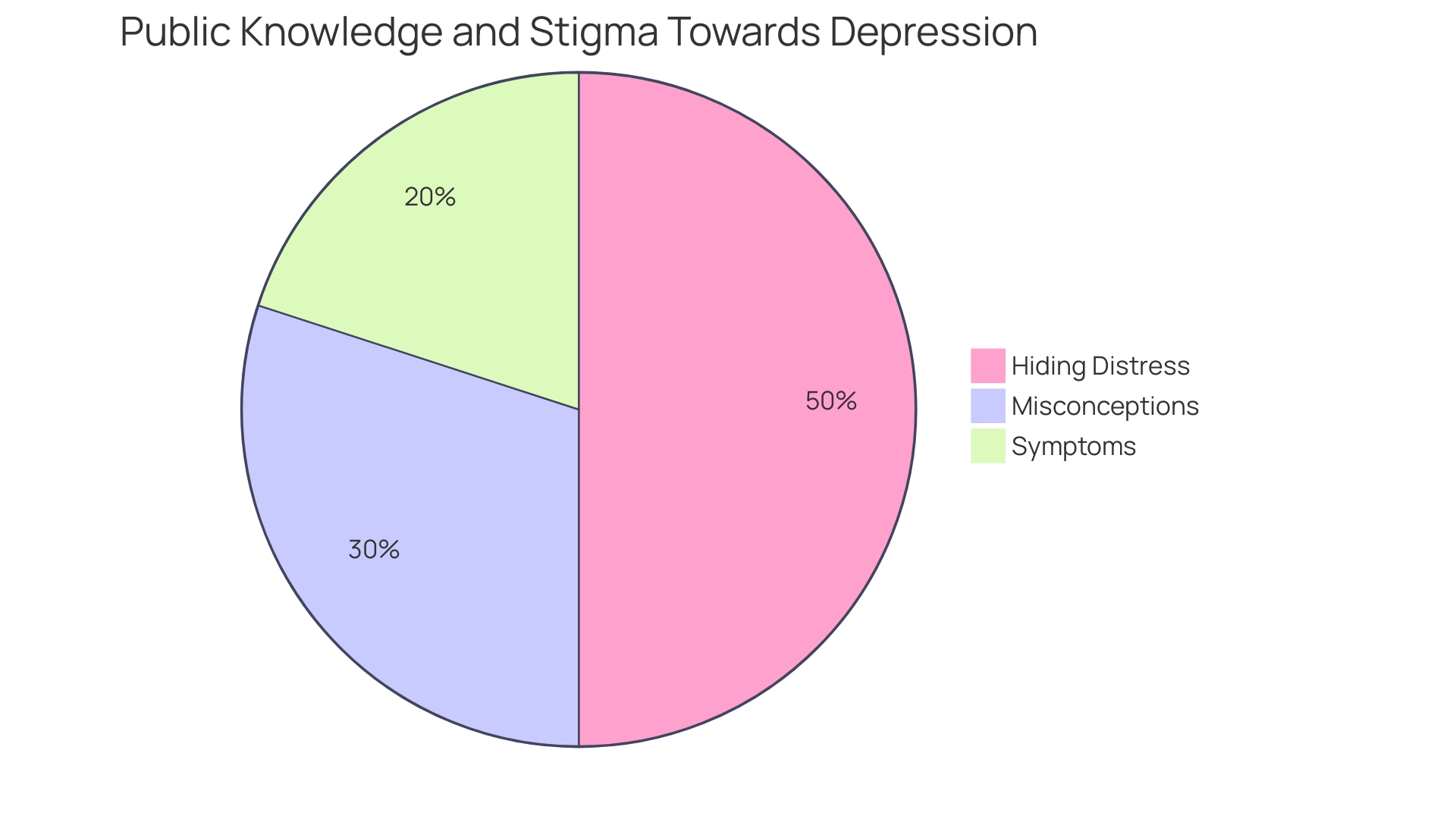
Conclusion
Autism Awareness Month is a global movement that advocates for understanding, inclusivity, and acceptance of individuals on the autism spectrum. It celebrates the diversity and potential within the neurodiverse community, emphasizing the unique strengths and challenges of autism. President Biden's proclamation on World Autism Acceptance Day highlights the importance of honoring diversity and addressing disparities in access to employment, healthcare, and education.
This month serves as a beacon, illuminating the complexities of autism spectrum disorder (ASD) and the need for early identification and intervention. It calls for enhanced support services, inclusive educational opportunities, and a deeper embrace of neurodiversity.
Autism Awareness Month celebrates the contributions of autistic individuals, promoting understanding, acceptance, and actionable support. It highlights the richness of neurodiversity and fosters a culture where their abilities are valued and integrated into everyday life.
The month offers a bridge to vital resources and communities of care for individuals with autism and their families. It aims to create more inclusive support networks and advocates for research funding to enhance their quality of life.
This global movement transcends boundaries, uniting diverse groups and fostering cooperation and knowledge exchange. It strives to ensure the rights of individuals with autism are acknowledged and upheld internationally.
By promoting understanding, inclusion, and celebrating the contributions of autistic individuals, Autism Awareness Month paves the way for a more inclusive society where every individual is respected and valued.
Throughout April, individuals and communities are encouraged to actively support and engage with the autism community, organizing events, raising awareness, and amplifying voices. Every action, no matter how small, contributes to creating a more inclusive world and achieving the goals of Autism Awareness Month.




